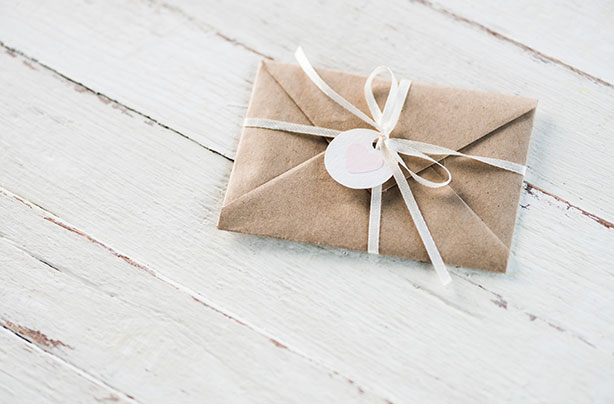Expert reveals the ONE thing you should say to a parent whose baby has died
'The death of a baby is a major bereavement and should be acknowledged'

Whether it's through miscarriage, stillbirth, or in a child's early days, the death of a baby is one of the most painful experiences imaginable.
When a child dies, what parents need more than ever is support from their friends and family, but often, those friends and family find it difficult to know how to offer the help they so desperately want to give.
We spoke to Erica Stewart, Bereavement Support and Awareness Specialist at Sands, the stillbirth and neonatal death charity, about the best things you can say to someone who's going through one of the hardest times of their life, as well as the comments you should avoid.
The one phrase to say to parents whose baby has died
If you could only say one thing, Erica suggests simply tackling the topic head-on, and saying: 'I am so sorry to hear that your baby has died'.
Always use the baby's name if you know it. 'It's all about acknowledgement, the death of a baby is a major bereavement and should be acknowledged as one,' she explains.
'It's important to use the right language when communicating with someone who has been bereaved. Try to avoid using euphemisms such as passed away, or lost your baby, as this does not reflect the enormity of what has really happened.'
Other helpful things you can say to parents whose baby has died
Erica recommends making the person's baby a topic of conversation, asking thoughtful questions like 'How are you doing since your baby died?' or 'Tell me about your baby'.
Parenting advice, hot topics, best buys and family finance tips delivered straight to your inbox.
Other simple acknowledgements include 'I'm thinking of you', 'I'm here for you', and 'I can't imagine what you are going through, I am here to help in any way I can'.
However, whilst the words are meaningful, actions can sometimes speak even louder.
'In the early days everyday tasks can be difficult to carry out when the grief is raw,' Erica notes. 'Offer practical help! Avoid saying "let me know if you need anything", just ask or do it. Chances are bereaved parents won't reach out to ask for help in the early days. Grief is overwhelming and can be exhausting.'
Try to use targeted questions like 'I'm going to the supermarket, do you need anything?', or if they have other children 'Can I take/collect your children to/from nursery or school?' or 'Can I take the dog for a walk?' if they have a pet. Taking a cooked meal to their house is often a much-appreciated gesture.

Things to avoid saying to parents whose baby has died
'Many bereaved parents have told us that people literally cross the road to avoid speaking to them,' Erica admits. She wants you to do the opposite - cross the road deliberately to speak to a bereaved mum or dad.
'Don't try to cheer them up, give them permission to grieve,' she adds. 'Try to avoid starting sentences with the phrase "at least" - there is no consolation.'
Parents whose baby has died often hear things like 'How are you now?' or 'Are you better now?', but Erica reminds us that although grief can fade, it never goes away. Other common phrases that people believe to be comforting but can actually be upsetting are those such as: 'At least you have your other child/children', 'At least you didn't get to know it', 'I know how you feel', and 'You are young, you can have another one'.
How to help as time goes on
'Support from close friends and family members often falls away after a few months as everyone else just gets on with their lives,' says Erica.
'It can be hard for bereaved parents to see that everyone else's lives are carrying on while their life has been turned completely upside down. Once bereaved parents start functioning in the weeks and months ahead, it's easy to think that they are "alright now".' Even if you struggle to speak about the bereavement on a regular basis, many parents whose baby has died find it helpful to mark the anniversary of their baby's death, and this is something you can do too. 'Bereaved parents can experience a new wave of grief throughout the years at such times as anniversaries of their baby's death and festive celebrations at certain times in the year,' she details.
'It's worth bearing in mind that acknowledgement of this can be helpful and a great comfort. You could send a card or text to say: "I just want you to know I am thinking of you on [their baby's] anniversary".
'Don't be afraid that you will upset them by mentioning their baby - bereaved parents haven't forgotten their baby has died,' she assures. 'It brings such comfort to bereaved parents to know that others haven't forgotten their baby.'
Trusted, informative, and empathetic – GoodToKnow is the ultimate online destination for parents. At GoodtoKnow, our mission is 'simple': we're trying to make sense of parenthood. On the site, you'll find everything you need for a happy, healthy family life. Our huge archive of content includes more than 18,000 articles and 1,500 how-to videos. These include expert-backed advice features on parenting, dealing with relationship changes after having a baby, self-care for mums and managing your family finances. We also feature tried-and-tested product reviews and buying recommendations for every stage of family life - from prams and Moses baskets to birthday gifts and top toys.